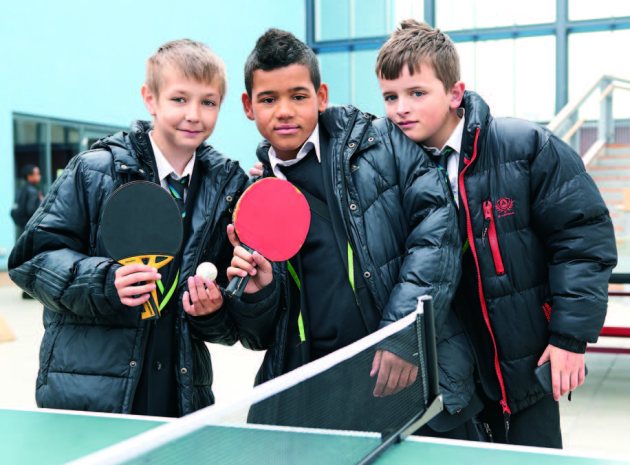If you're thinking about giving your school's exterior spaces a bit of a makeover during the summer holidays then Juno Hollyhock has some key questions to bear in mind
WHAT DO I WANT TO ACHIEVE?
This is an important question and it must come before you start any planning. Itís really about what outcomes you want to see for pupils and staff through better use of the school grounds, so you donít end up simply leafing through catalogues of equipment and placing orders without having a properly thought out plan.
Once you have decided what you want to achieve (better teaching and learning in certain curriculum areas; healthier, fitter, more relaxed pupils; better behaviour etc) then you can move onto the next question.
WHAT WOULD STAFF AND PUPILS LIKE TO SEE?
Even with a short time left before the long holidays it is never too late to consult. Effective consultation means that you will end up with spaces that pupils and staff value, protect and, more importantly, will use.
Consultation shouldn't raise unrealistic expectation beware the request for a school swimming pool or a skate park instead, you should focus on asking questions that make people think about how their use of the space might change. Ideally consultation should take place in the outdoor space itself; indeed a useful way of finding out where seating or shelter needs to be placed is by observing where pupils tend to congregate during breaks. Does this change during different types of weather and are there aspects of these self-chosen spaces that can be enhanced? Are children sitting on the ground, for example, is there a scrabble for the shaded spot? Are children hanging off things you would rather they didnít hang off, meaning there is a need for some challenging activity equipment?
MIGHT I BE ABLE TO GET FUNDING TO HELP WITH THIS?
There is often the misconception that schools canít access grants and charity funding. We do not fund statutory services will be a familiar response to anyone trying to seek much-needed funds for a school grounds project however, stimulating, inviting and accessible spaces are by no means statutory. There is a range of lottery distributors, charitable trusts and local foundations that will support schools grounds projects as long as you can show its primary focus is not the delivery of statutory services. The Big Lottery Awards for All programme, for example, will fund projects that ëtake place before or after school, during lunchtime or in the holidays.
It can be a daunting task embarking on a fundraising project so Learning through Landscapes offers its supporters (sign up, itís free!) advice on funding sources and top-tips in its bi-monthly newsletter (http://ltl.org.uk/contact/newsletter.php). Another potential source of funding is the Tesco Charity Trust Community Awards Scheme for projects between £500 and £4000, including those in support of ëchildrenís welfare and/or children's education. Projects previously supported include playground equipment, sensory gardens and outdoor classrooms applications should be made between 1st May and 30th June.
The school community is an excellent vehicle for hunting down potential sponsors; don't be afraid to ask everyone you can think of for sponsorship. The personal approach often works best, so talk to people or email them individually. Make sure you explain why you are making the changes to the school grounds and not just what the changes are. For example, ëimproving the health and wellbeing of children by giving them hands on experiences of cooking outsideí will have more impact than, digging a fire pit.
WHAT SHOULD I BUY?
There is a huge range of school grounds equipment products on the market; everything from climbing walls to vertical planting racks. You will achieve best value for money if you try to ensure the maximum versatility and flexibility. Think carefully before spending large amounts on pieces of equipment that have only one use unless there is a really strong demand for it and you know it will be well used for a reasonable amount of the year. Be clear too about what levels of supervision complex pieces of activity equipment require and ensure that you are not investing in something that will need excessive levels of staffing or training. Above all, remember to exercise the same discernment you would use if purchasing equipment for your own garden. It is almost always better to spend a little more on fewer items in order to get a high quality produce that will last longer.
ABOUT THE AUTHOR
Juno Hollyhock has been executive director at learning through landscapes since 2012, having previously worked as national communications manager at oasis. she has a broad range of experience in the field of outdoor learning and childrenís play the vision of learning through landscapes is that every child benefits from stimulating outdoor learning and play in their education. find out more at ltl.org.uk.









